Commercial Construction Loans (5 Key Steps for Success)
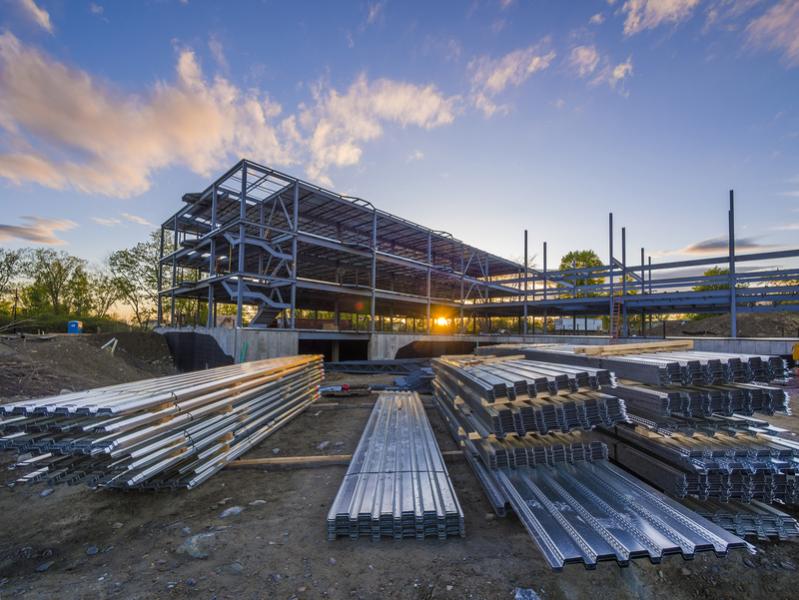
September 04, 2015
Commercial Construction Loans (5 Key Steps for Success)
It's not easy to obtain a commercial construction loan. People who are successful have learned from experience these 5 critical steps. I have been doing commercial construction lending for 17 years. I have found that many deserving projects fail to produce a loan. This is simply because the developer has left out just one or more of these proven essential steps that I will share with you now:
1. Making Sure Your Construction Project is Economically Sound
We are starting with this one because if your project doesn’t pencil out, there is no need to go any further. Keep in mind that all commercial construction lenders start with the permanent loan and work backwards to the construction loan. They will not do the construction loan if the projected net operating income of the fully leased property does not support a permanent loan. There are 4 parts to this step:
- Do some research on commercial properties like yours to determine the going rents that the market will support on your project. Find some listings on www.loopnet.com that show expenses for a property like yours, or talk to a commercial realtor to estimate annual expenses on your project.
- Do a quick analysis of projected cash flow called a pro forma to determine the projected Net Operating Income (NOI). Start by doing an estimated rent roll showing the rents for each unit or space. Then do a pro forma profit and loss statement showing gross annual income and itemized annual expenses. Come up with the annual net operating income by subtracting expenses from the income.
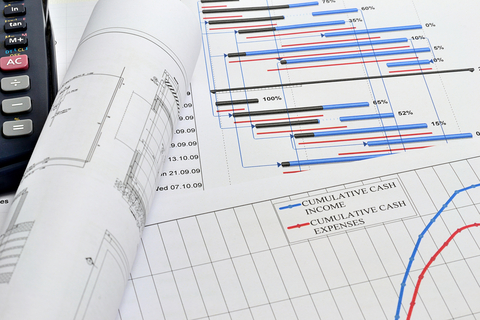
- Determine the Annual Debt Service Coverage Ratio (DSCR). Take the annual Net Operating Income and divide it into the Annual Perm Loan Payments. You can go to one of our websites to get current interest rates:
The DSCR will need to be at least 1.25 and preferably 1.35 so there is a cushion of excess net cash flow. If it is a lot lower than this, your construction loan will be turned down. You can counter this outcome by proving to your lender through a market study—or opinions from a property management company—that you can achieve higher rents than originally proposed.
- Estimate the Appraised Value, by researching the sub-market. A commercial construction loan appraisal will have an as completed value and a completed and stabilized (fully leased) value. The appraisal will have 3 parts:
- The Income Approach which will evaluate the projected net operating income of the of the subject property with 3 – 5 similar properties in the market. Based on the market capitalization rate a value will be estimated for the your to be built property.
- The Sales Comparison Approach which will average the sale price for 3 – 5 similar properties sold in the last year or two and based on square footage and amenities estimate a value for your to be built property.
- The Cost Approach is a value based on your construction budget or contract including the value of the land.
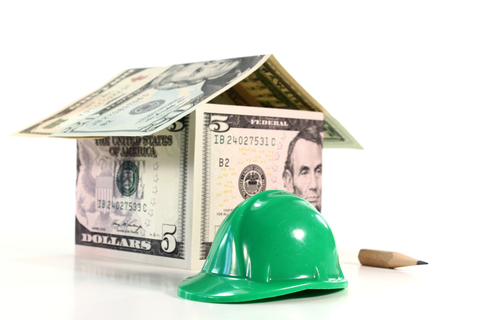
Doing research ahead of time on the first two approaches is critical as you don’t want to have the lenders appraisal kill your deal. Keep in mind that bank appraisals have a tendency to be conservative, so it is prudent that your estimate of appraised value is conservative as well.
2. Making Sure You Have The Money
This includes the down payment, the closing costs and some cash left over after the loan is closed. Commercial Construction Loans require that you have between 20% and 35% equity into the project. Lenders do not want you to be completely broke on the day they close your commercial construction loan, so you will likely need at least 10% of the loan amount in post-closing liquidity. You can leverage your equity in the land toward this cash requirement if you already own it. Put yourself in the lender’s shoes. If someone came to you for a sizable commercial construction loan and told you that they had some of the down payment, but needed to raise the rest, would you be excited about making a loan to them? These loans could easily take the lender 20 hours or more just to evaluate the project and give you a letter of interest. Do you think they want to spend this much time on a deal when the borrower does not have the down payment?
Therefore, it is best to raise the cash, and show the lender a copy of your bank or security statement, verifying funds upon your first meeting (they love this). This is a great way to get your lender excited about the project from day one.

If You Do Not Have the Down Payment Now
If you do not have enough cash now, continue reading this article. If you meet most of the other 5 critical items needed to get a commercial construction loan, and you have some time before you need to start the project, here are some tips on how to still make your project happen:
- Before talking to a lender about your project, bring in an investor who has the additional cash you need. Talk to all the real estate professionals you know. You can offer them a finder’s fee if they locate an investor for you. Also talk to all the high net worth individuals you know who have money invested in low return stocks or in low interest bearing bank accounts.
- Raise funds through a Private Placement Memorandum (PPM). A PPM is a legal document that informs investors on everything they need to know about the investment and explains the risks involved. To learn more about a PPM go to: https://www.biggerpockets.com/renewsblog/2013/01/21/private-placement-memorandum/
- If your commercial construction loan request is for an apartment complex and is $3M or more, feel free to call one of our loan specialists at Apartment Loan Store or Business Loan Store. We have a special government program that is easier to qualify for, and goes to an average of 80% of cost. This program is more user friendly for you to raise funds while you are awaiting loan approval.
- Find a Venture Capital Firm to contribute most of the equity for your deal. If you own the land, are an experienced developer and have at least 10% to 20% of the equity needed for your transaction, feel free to call one of our loan specialists at Business Loan Store and we can assist you in placing your deal with a venture capital firm.
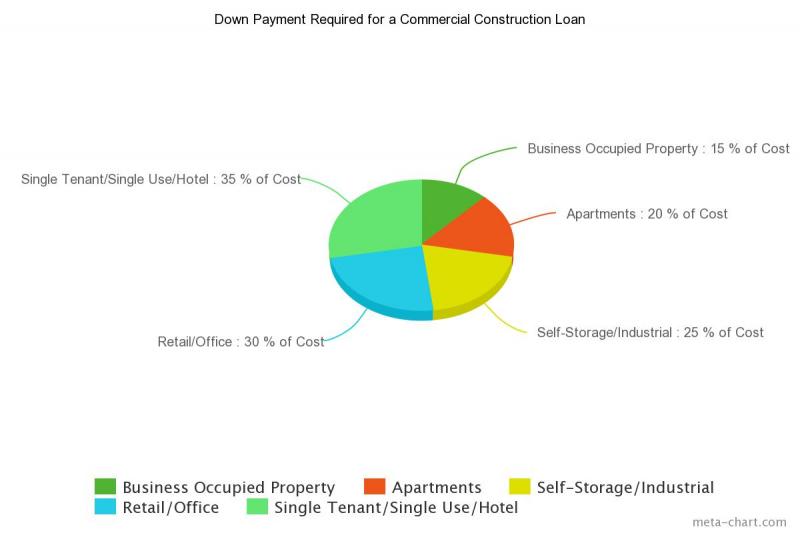
3 Making Sure You have the Experience
The greatest risk to a commercial construction lender is that the project will go over budget and/or not be completed on time. If it takes longer to build, it will likely go over budget. Once completed, if the project takes longer to fill with tenants, the project will likely go over budget. Running a development company is managing a highly skilled business. A developer needs to have the following skills to successfully complete the project:
- The ability to work with city or county building/planning departments to get the project approved and entitled. Also, to understand density, landscaping, easement and parking requirements
- The ability to buy the land at the right price
- The ability to design the development so that it will be both appealing and profitable
- The ability to accurately access the need for the project
- The ability to put together a fairly accurate construction budget for hard and soft costs
- To have an in-depth understanding where all the utilities are coming from and how they are to be installed onsite.
- The ability to scale the project down in cost if the construction contract comes in higher than the construction budget
- The ability to time manage the construction
- The ability to accurately project the income and expenses of the stabilized commercial property
- If you are not the general contractor, the ability to hire the right general contractor who can get the project done on time and on budget
- The ability to hire the right management company so that the units are absorbed quickly and the tenants are given great service

If you don’t have the experience – This is a no brainer. Find an experienced developer to mentor you. Perhaps give him a 10% ownership in the property in exchange. On the next deal you can be the experienced developer.
4 Making Sure The Key Principals Qualify for the Loan
A key principal is an individual who will be signing on the loan weather it is a recourse (guaranteed) or non-recourse loan. This individual can be but does not have to be the developer. There can be, and often is, more than one key principal. To qualify, these individuals will have to have: good credit (credit score of 680 or above) and low consumer debt. They will also need to have a combined net worth.
- Good Credit (a score of 680 or above)
- Combined net worth exceeding the loan amount
- Combined liquidity equal to 10% to 20% of the loan amount
- Adequate income verified on tax returns
If the Key Principals Do Not Meet the Criteria Listed Above
Call one of our friendly loan specialists at Business Loan Store to determine if your project will qualify for one of our government programs that do not require tax returns and/or strong net worth and liquity.
5. Making Sure You Have The Right Professionals on Your Team
Keep in mind that just about all commercial construction loans require a completion guarantee (even non-recourse construction loans). Many also require a net operating income (NOI) guarantee. This means that the key principals must guarantee that if the property doesn't lease up fast enough and the interest payment reserve is used up that they guarantee that they will make the loan payments out of their own funds. I am bringing this up because this makes it clear that commercial construction lenders consider project completion and efficient lease up their main risk factors.
Therefore it is imperative that you choose the right professionals on your team:
- General Contractor – The general contractor will need a resume highlighting expereience with the type of construction that your project entails. The GC will also have to have good credit and in many cases on larger projects be strong enough financially to post a performance bond (surety bond issued by an insurance company) guaranteeing the completion of the project. It is imperative that you choose a general contractor that meets the standards of your lender. It is wise to not assume that you will qualify to be the General Conractor until you check out what the lender requirements are. The best general contractors will help you design the project so that it comes within your construction budget.
- Property Management Company – A good property managment company on larger projects will be required to give the construction lender the comfort level they need to know that once the project has been completed, it will be leased up quickly, run efficiently and operate economically. Choosing the right property management company will help you land your construction loan. You might qualify to manage the property yourself if you have experience successfully doing this on similar properties.
- Architect – You want to choose a designer and architect that specializes in your type of construction and will be able to design your project so that it is both attractive and economically sound. Outstanding floor plans and elevation drawings are essential in getting your commercial construction lender excited about the project.
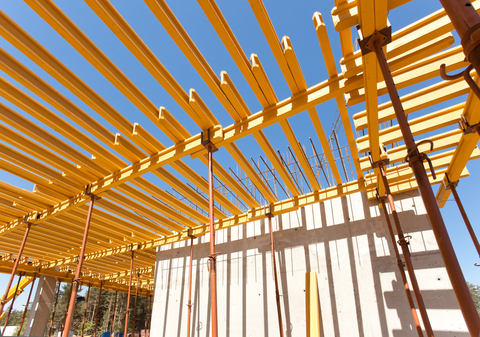
I hope you found these tips helpful. If you would like to have one of our loan professionals consult with you on your commercial construction project please visit our websites:

By: Terry Painter/President
Apartment Loan Store
Business Loan Store
CLOSING 97% OF OUR MULTIFAMILY LOANS AS PROPOSED
Getting the right loan and the lowest rate requires wisdom and finesse. If you’re ready to partner with a team of professionals who’ve built a foundation on straight talk and true strategy, we are the loan store for you.
28+ YEARS OF OVER-DELIVERING VALUE.
HUD Loans are one of the best options with the current level of interest rates. For a complete guide to HUD Multifamily Loans please go here:
